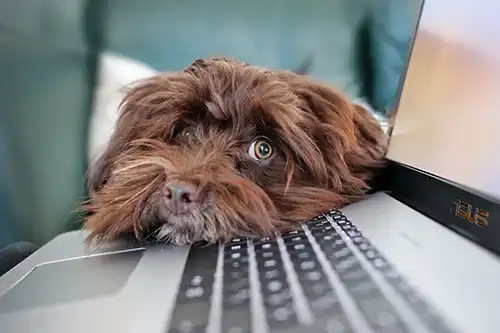Happy Holidays! This special time of year can get pretty busy, but don’t let that hustle and bustle get too out of control. The really important thing is spending time with loved ones. That includes our pets: not only dogs and cats, but also smaller animals such as hamsters, mice, gerbils, and Guinea pigs. These little fellows also require a little extra care over the holidays! Continue reading for advice from a local Las Vegas, NV veterinarian on caring for a pocket pet during the holidays.
Holiday Gifts for Pocket Pets
Many tiny animals have open-rooted teeth and must chew continuously to prevent painful dental problems. In the wild, they would eat tough roots and fibers, which wear their teeth down. Pets have softer diets, so need to be given those harder materials to gnaw on. You can find adorable options in stores. There are also many things you can make yourself.
Crumple plain paper into balls and place it in a shoebox or paper shopping bag. To make it more fun, place a tiny treat or snack in the middle. Another alternative is to shred paper into thin strips and place them in a box or paper bag. If you have children, you could even have them fold or cut the paper into shapes like snowflake chains.
Those cardboard tubes from toilet paper or paper towel rolls can be extremely useful. Fill them with herbs or plain paper, or split them into rings and reassemble as small balls. You can also poke holes in them and insert sticks or herbs. Another option is to shape them into small pyramids. Use a nontoxic adhesive or make your own from flour and water.
Wood and wicker items are popular snacks among many tiny animals. There are a few limitations, however. Only use woods that you know are safe. Avoid pine, cedar, and other hardwoods; the oils are harmful to small animals.
Any and all wood items should be fully cleaned and disinfected before handing them over. Also, only use safe untreated wood. There should be no sharp splinters sticking out, either.
Contact your veterinarian for further information.
Giving Your Pocket Pet Treats
Little animals like snacking just as much as their larger cousins. Just stay with the safe options. The specific list will vary depending on the type of pet you own, but some things are safe for most animals. That includes bananas, strawberries, blueberries, and melons. Just don’t go crazy with sweet foods, however. Too much sugar is not a good thing. As for veggies, carrots, sweet potatoes, bell peppers, and cucumbers are all safe options.
Make sure to consult your veterinarian for precise guidance on safe and unsafe treats. Also, avoid giving your pet anything that is unsafe for them. This includes chocolate, garlic and onion, avocado, anything containing xylitol, and anything high in salt, sugar, or fat.
Decorate Your Pocket Pet’s Cage
Who says you can’t decorate your pet’s cage? While you should not hang ornaments, tinsel, or lights inside your pet’s cage, you can certainly set them outside or around it.
Smaller pets love and benefit from having hidey-holes to retreat to when they are terrified, want seclusion, or simply need to sleep. You can utilize a variety of cute seasonal items, including igloos, winter houses, and even manger parts. Gift bags and boxes are also suitable for this purpose. Simply do not give anything with little bits or sharp objects. Things that are brittle or fragile are also unsafe.
Seasonal bedding is a cute way to incorporate a cozy seasonal theme. You can buy pet tents, cozies, and hammocks made of beautiful fabrics. Or make your own.
Seasonal Hazards for Pocket Pets
Teeny tiny pets, like mice, will probably spend most of their time in their habitats, but larger ones do need to get out. We always urge comprehensive bunnyproofing before allowing pets outside of their habitats. You’ll need to take a few extra precautions during the holidays.
Many seasonal plants, including holly, ivy, and mistletoe, are harmful to pets. Keep these up high where your pet cannot get them.
Pick up any tinsel, ornament hooks, or needles (pine or plastic) that have fallen to the floor. Pocket pets may try to eat them!
Fires, candles, and fireplaces are not safe for your pint-sized companion. Keep candles and potpourri burners high and out of reach of pets, and set grates in front of fires.
Bunnies are large enough to access ornaments and presents. Ribbons, tinsel, lights, and other decorations are also dangerous.
Taking Cute Pictures of Your Pocket Pet
We never get tired of seeing pics of our adorable patients. Why not take some seasonal photos with your small companion? Have fun with this. You can create a small photo set. Many decorative pieces will work great for this. You can also pick up a tiny igloo or sleigh, or get some small antlers or Santa hats. These can make for some wonderful images. Just stick to safe props. Avoid using anything small or pointy, or anything with dangling threads.
We can also provide some photography tips. When taking a picture of your pet inside their habitat, try to slant your phone downward. This will help reduce glare. Also, if your phone has a macro feature, try using it. It may perform better than the zoom.
Protecting Pets from Holiday Stress
All the rush and bustle can be daunting for pets. If you’re expecting a large number of guests, you might want to take a few precautions to keep your little companion quiet. Consider relocating their habitat to a quiet back room until the Christmas hoopla subsides.
Book An Appointment At Our Las Vegas, NV Pet Clinic
Season’s greetings from everyone here at your pet clinic. Have you got any questions about your pet’s health or care? Contact us, your local Las Vegas, NV animal clinic, at any time!






!Social Media Icons